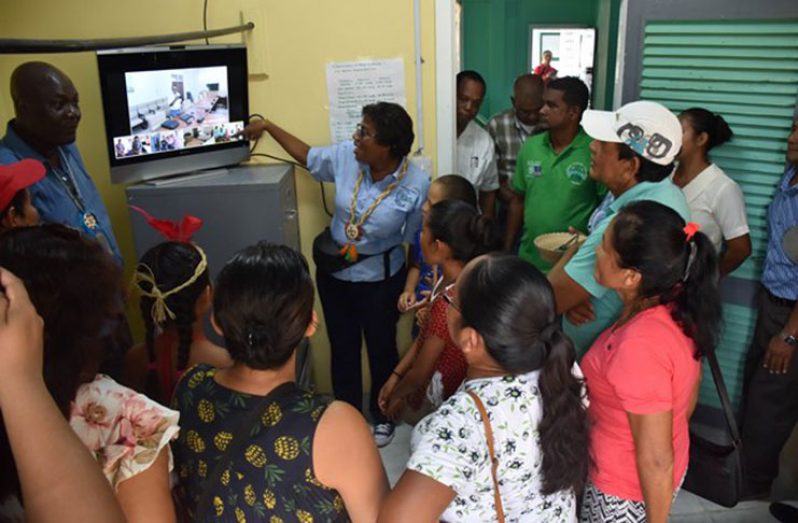…equipment installed in 4 health facilities
…health personnel to receive training before operation commences
UNDER the $7B National Broadband Project, the government has installed video-conferencing equipment for use in ‘telemedicine’ applications in four of the 30 health clinics identified for the project.
Installation has been undertaken at facilities Baracara and Orealla in Region Six and the New Amsterdam and Bartica Regional Hospitals in Regions Six and Seven, respectively, the Department of Public Information (DPI) said in a report.
An operational manual has been developed and in the second half of this year, medical personnel in those locations will receive training on the correct use of the equipment. Video-conferencing equipment was also purchased for installation at health facilities in Regions One, Six, Seven, Eight and Nine with training slated to be undertaken at the facilities before the end of 2019, the DPI reported.
In April, the telemedicine initiative came on stream at the Orealla Health Centre on the Corentyne, allowing the doctors and other medical personnel stationed there to have direct video communication with facilities such as the New Amsterdam Regional Hospital and other hinterland health centres.
It was highlighted that the service vastly improves the health centre’s capacity to conduct diagnoses and facilitates direct contact with specialists. It allows the staff stationed there to speak in “real-time” with specialists.
Minister of Public Health, Volda Lawrence, welcomed the project stating that it will open new doors within the health sector.
“When this programme is launched it will cut dependency on the current medevac services for interior residents, especially alleviating maternal and child health issues in the Hinterland regions,” she said.
According to Pan American Health Organisation/World Health Organisation (PAHO/WHO) office in Georgetown, the Guyana Public Hospital Corporation (GPHC) will act as the national telemedicine hub, building capacity in the use of information and communication technologies (ICT) for the effective implementation of the telemedicine programme.
Other benefits will see the expansion of decentralised specialist care from the country’s four main regional hospitals and the development of a community of practice for telemedicine to provide teaching and counseling around complex cases.




.jpg)









